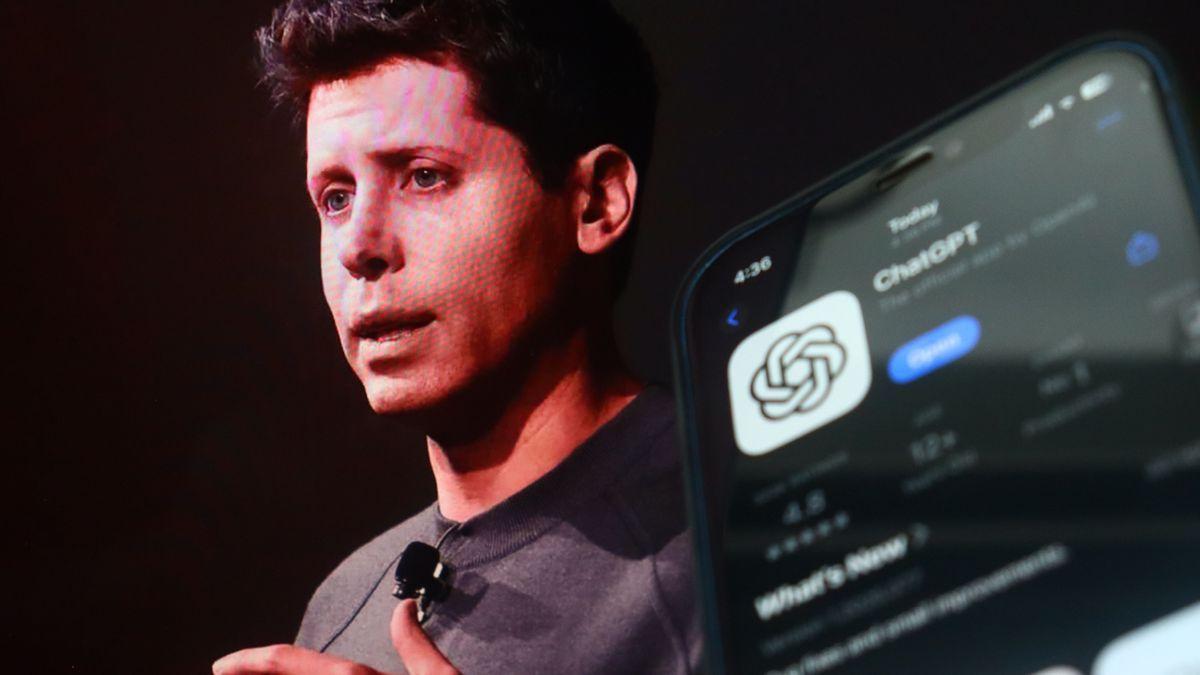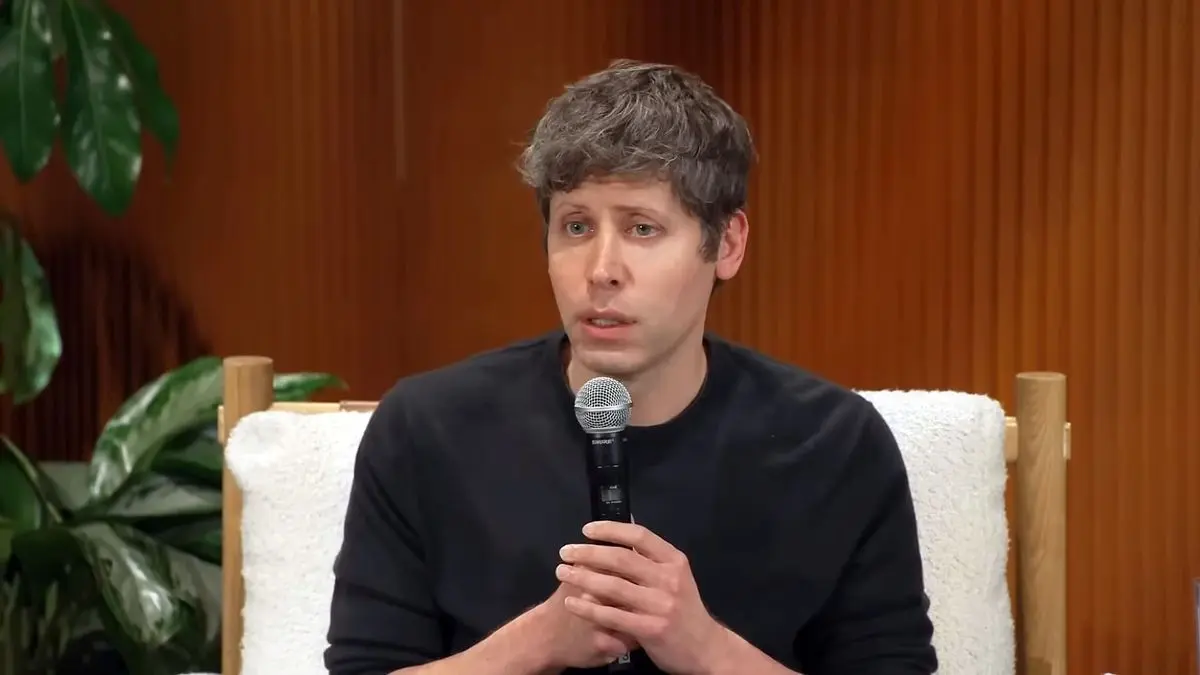Sam Altman Envisions Future Startups as 'One Person Plus 10,000 GPUs'
2 Sources
2 Sources
[1]
Sam Altman says Future Startups Could be Just One Person plus 10,000 GPUs
While the question of 'a one person billion dollar startup' is not new, AI could soon make this a ubiquitous reality. OpenAI chief Sam Altman has defined five levels of AI development that will lead to AGI. The first stage is chatbots, followed by reasoners, which the company says has now been achieved with o1. The next phases are agents, followed by innovators capable of scientific discovery and finally fully autonomous organisations. In a recent podcast with YC chief Garry Tan, Altman said despite it being a great time for startup founders, the future of startups will likely be one person plus 10,000 GPUs, as we race towards the intelligence era. This is in line with Altman's previous thoughts on how AI tools will soon reach a point where they can replicate the entire output of human employees. In the same podcast, YC's Garry Tan described this as a pattern, where reaching level two mirrors level five, with self-correcting agents already collaborating like a micro-organisation. "In my little group chat with my tech CEO friends there's this betting pool for the first year there is a one-person billion-dollar company, which would've been unimaginable without AI. And now it will happen," said Altman in a previous interview. The question of 'one person billion dollar startup' is not new and was addressed by a16z founders Marc Andreessen and Ben Horowitz in their podcast before. Andreessen noted that a trillion-dollar startup with just one person already exists -- Bitcoin. This is attributed to the work of one pseudonymous creator, Satoshi Nakamoto. This positions Bitcoin as a prime example of a highly impactful project initiated by one individual. Andreessen also said that companies that are not led by one person, like Instagram, achieved billions in sales with just 11 employees, and WhatsApp generated over $15 billion with only 50 employees. They both also talk about how the proliferation of advanced tools and outsourcing mechanisms may allow for more billion-dollar companies with minimal headcount, even if full automation isn't yet possible. More recently, industry veteran Vinod Khosla noted how all of this will transform the future of work, ultimately leading to the rise of the passion economy. He spoke about this inevitable shift in his essay 'AI Dystopia or Utopia,' where he highlighted how AI could make three-day workweeks a reality. "With the right policies, we could smoothen the transition and even usher in a three-day workweek," wrote Khosla, underlining how AI will fundamentally transform the way we work, albeit in a way that positively impacts all of humankind and the economy at large.
[2]
'The Future of Startups Could be Just One Person & 10,000 GPUs,' says OpenAI's Sam Altman
While the question of 'a one person billion dollar startup' is not new, AI could soon make this a ubiquitous reality. OpenAI chief Sam Altman has defined five levels of AI development that will lead to AGI. The first stage is chatbots, followed by reasoners, which the company says has now been achieved with o1. The next phases are agents, followed by innovators capable of scientific discovery and finally fully autonomous organisations. In a recent podcast with YC chief Garry Tan, Altman said despite it being a great time for startup founders, the future of startups will likely be one person plus 10,000 GPUs, as we race towards the intelligence era. In the same podcast, YC's Garry Tan described this as a pattern, where reaching level two mirrors level five, with self-correcting agents already collaborating like a micro-organisation. This is in line with Altman's previous thoughts on how AI tools will soon reach a point where they can replicate the entire output of human employees. "In my little group chat with my tech CEO friends there's this betting pool for the first year there is a one-person billion-dollar company, which would've been unimaginable without AI. And now it will happen," he said. Andreessen noted that a trillion-dollar startup with just one person already exists -- Bitcoin. This is attributed to the work of one pseudonymous creator, Satoshi Nakamoto. This positions Bitcoin as a prime example of a highly impactful project initiated by one individual. Andreessen also said that companies that are not led by one person, like Instagram, achieved billions in sales with just 11 employees, and WhatsApp generated over $15 billion with only 50 employees. They both also talk about how the proliferation of advanced tools and outsourcing mechanisms may allow for more billion-dollar companies with minimal headcount, even if full automation isn't yet possible. More recently, industry veteran Vinod Khosla noted how all of this will transform the future of work, ultimately leading to the rise of the passion economy. He spoke about this inevitable shift in his essay 'AI Dystopia or Utopia,' where he highlighted how AI could make three-day workweeks a reality. "With the right policies, we could smoothen the transition and even usher in a three-day workweek," wrote Khosla, underlining how AI will fundamentally transform the way we work, albeit in a way that positively impacts all of humankind and the economy at large.
Share
Share
Copy Link
OpenAI CEO Sam Altman predicts a future where AI enables billion-dollar startups run by a single person with access to substantial computing power, potentially revolutionizing the startup landscape and work culture.

Sam Altman's Vision of AI-Driven Startups
OpenAI CEO Sam Altman has sparked a debate about the future of startups in the age of artificial intelligence. In a recent podcast with Y Combinator chief Garry Tan, Altman suggested that the future of startups could be "one person plus 10,000 GPUs," highlighting the potential for AI to dramatically reshape the entrepreneurial landscape
1
2
.The Five Levels of AI Development
Altman has outlined five levels of AI development that he believes will lead to Artificial General Intelligence (AGI):
- Chatbots
- Reasoners (achieved with OpenAI's latest model, GPT-4)
- Agents
- Innovators capable of scientific discovery
- Fully autonomous organizations
This progression suggests a future where AI systems become increasingly capable of performing complex tasks and even entire job functions
1
2
.The Rise of One-Person Billion-Dollar Companies
The concept of a "one-person billion-dollar startup" is not new, but AI could make it a more common reality. Altman revealed that among his tech CEO friends, there's a betting pool for the first year such a company will emerge
1
. This idea aligns with Altman's previous statements about AI tools potentially replicating the entire output of human employees2
.Historical Precedents and Industry Perspectives
Marc Andreessen, co-founder of Andreessen Horowitz, points to Bitcoin as an example of a trillion-dollar project initiated by one person (or entity) under the pseudonym Satoshi Nakamoto
1
2
. Other examples of companies achieving significant value with minimal staff include:- Instagram: Billions in sales with just 11 employees
- WhatsApp: Over $15 billion in value with only 50 employees
These cases demonstrate the potential for creating substantial value with small teams, a trend that AI could further amplify
1
2
.Related Stories
The Transformation of Work
Industry veteran Vinod Khosla has discussed how AI could lead to the rise of the "passion economy" and potentially enable three-day workweeks. In his essay "AI Dystopia or Utopia," Khosla argues that with the right policies, AI could fundamentally transform work in a way that benefits both individuals and the economy at large
1
2
.Implications for the Future
The vision presented by Altman and others suggests a future where:
- Startups could be run by individuals leveraging powerful AI tools
- The nature of work could change dramatically, potentially reducing work hours
- The barrier to entry for creating high-value companies could lower significantly
However, this future also raises questions about job displacement, economic inequality, and the need for new regulatory frameworks to manage these changes
1
2
.As AI continues to advance, the startup ecosystem and the broader economy may need to adapt to these new realities, balancing the potential for innovation with the societal impacts of such transformative technologies.
References
Summarized by
Navi
Related Stories
Anthropic CEO Predicts First Billion-Dollar Company with One Employee by 2026, Powered by AI
24 May 2025•Business and Economy

Sam Altman Envisions AI-Led Future: OpenAI CEO Wants to Be Replaced by Artificial Intelligence
06 Nov 2025•Business and Economy

Sam Altman Predicts Transformative AI Future: Superintelligence and Robotics by 2030
11 Jun 2025•Technology

Recent Highlights
1
ByteDance's Seedance 2.0 AI video generator triggers copyright infringement battle with Hollywood
Policy and Regulation

2
Demis Hassabis predicts AGI in 5-8 years, sees new golden era transforming medicine and science
Technology

3
Nvidia and Meta forge massive chip deal as computing power demands reshape AI infrastructure
Technology





